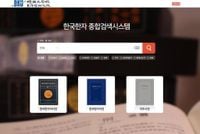On April 14, 2025, the Dongyang Institute of Studies at Dankook University unveiled a groundbreaking digital dictionary that integrates and allows the searching of unique Korean Chinese characters and idiomatic expressions. This initiative marks a significant advancement in the field of linguistics and cultural studies in Korea, as it is the only one of its kind in the country.
The new system is built upon the academic achievements related to Korean-style Chinese characters and idioms compiled by the Institute, which includes the 'Korean Chinese Dictionary' published in 1996, the 'Idiom Dictionary' from 2020, and the 'Korean Chinese Character Dictionary' released in 2023. This integrated search platform is designed to provide users with an extensive array of resources in an easily accessible online format.
What sets this digital dictionary apart from traditional Chinese dictionaries used in the Chinese, Japanese, and Korean cultural spheres is its focus on 'Korean-style Chinese characters' and 'idioms' that utilize Chinese characters to represent Korean words. These features are particularly valuable for researchers and enthusiasts of Korean literature and history.
The digital dictionary boasts an impressive collection of approximately 85,000 Korean-style Chinese character entries and 74,000 usages from the 'Korean Chinese Dictionary' and 'Korean Chinese Character Dictionary'. Additionally, it includes around 4,200 idiom vocabularies and 12,000 idiom usages from the 'Idiom Dictionary', making it the largest repository of Korean Chinese character data available.
In a notable enhancement, the dictionary provides image data of ancient texts for usages that were previously unrecorded in existing paper dictionaries. This visual component adds significant value, allowing users to explore the historical context of the terms in a way that traditional formats could not accommodate.
Moreover, the dictionary incorporates approximately 2,300 newly created Chinese characters that are not registered in existing Chinese character Unicode or lack dedicated fonts. These characters are represented through the 'DK Korean Chinese Character' font, which was independently developed by Dankook University to ensure the completeness and accuracy of the material.
Users can search the database using various criteria, including radicals, sounds, and total strokes, enhancing the search capabilities significantly. The platform also features advanced search functions, such as integrated searching across the three dictionaries, keyword expansion and matching, and component-based searches (including entries, definitions, and usages). This level of sophistication allows for precise information retrieval.
Additionally, the digital dictionary includes a system for continuous updates and revisions, along with a multilingual support service that utilizes an automatic translation feature. This is particularly beneficial for both domestic and international researchers in the fields of linguistics, history, and East Asian studies, offering them broad access and usability.
Lee Jae-ryong, head of the Dongyang Institute of Studies, commented on the significance of this new resource, stating, "The digital dictionary we have launched reflects the historical context and changes of Chinese characters in Korean. It is the only and largest search system in the country and will greatly contribute to international research on the acceptance and development of Chinese characters in the East Asian cultural sphere." His remarks underscore the potential impact of this tool on both academic research and public understanding of Korean linguistic heritage.
Since 2017, the 'Korean Chinese Dictionary' has been providing Chinese character search services on Naver, Korea's largest portal site, demonstrating the ongoing commitment of the Dongyang Institute of Studies to make these resources widely available. The 'Idiom Dictionary' is also set to launch its services in the second half of 2025, further expanding the reach of these invaluable linguistic tools.
This digital dictionary not only serves as a crucial resource for scholars and students but also opens new avenues for public engagement with Korea's rich linguistic history. As researchers and the general public alike begin to explore this platform, it is expected to facilitate a deeper understanding of the role of Chinese characters in Korean language and culture.


